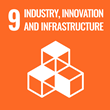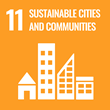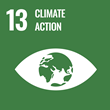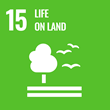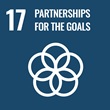Project information
Sustainable Historic Environments hoListic reconstruction through Technological Enhancement and community based Resilience
(SHELTER)

- Project Identification
- 0153/2018
- Project Period
- 6/2019 - 5/2023
- Investor / Pogramme / Project type
-
European Union
- Horizon 2020
- Climate action, environment, resource efficiency and raw materials (Societal Challenges)
- MU Faculty or unit
- Faculty of Economics and Administration
- Cooperating Organization
-
Unesco Paris
Universidad del País Vasco
Université de Liege
Universita di Bologna
Politecnico di Torino
Fundacion Tecnalia Reserch & Innovation
- Responsible person Aitziber Esusquiza Ortega, Ph.D.
Conselleria de Medio Ambiente
Fondazione Links ? Leading Innovation
Unismart Padova Enterprise SRL
Alpha Consultants S.R.L.
Meteorological and Environmental Earth Observat.
R.E.D. SRL
Tower Spa
Stichting Ihe Delft Institute for Water Educat.
Seferihisar Municipality
Nobatek INEF 4
Euronet Consulting
Gemeente Dordrecht
Zentrum für Risiko - und Krisenmanagement
Sistema GMBH
Ekodenge Muhendislik Mimarlik Danishmanlik
International Sava River
Ekodenge Sustainibility, Engineering Limited
SHELTER considers all the steps of disaster management: prevention, preparedness, response and recovery, through an iterative approach which ensures a progressive increase in resilience. The project builds upon heritage vulnerability assessment, exposure and hazards characteristics and on a data management strategy able to bring together different sources of information. Knowledge generated will serve for evidence decision-making in the prevention phase and establishment of contingency plans in the preparedness phase. A system thinking perspective allows understanding how different components within a historic area interact, which are the involved variables, their dependencies and the dynamic forces that affect their sensitiveness or adaptive capacity. Information gathered and analysed will serve as a basis for the recovery phase where, lesson learned, traditional knowledge and circular economy solutions will ensure sustainable reconstruction and resilience improvement of historic areas.
Sustainable Development Goals
Masaryk University is committed to the UN Sustainable Development Goals, which aim to improve the conditions and quality of life on our planet by 2030.
